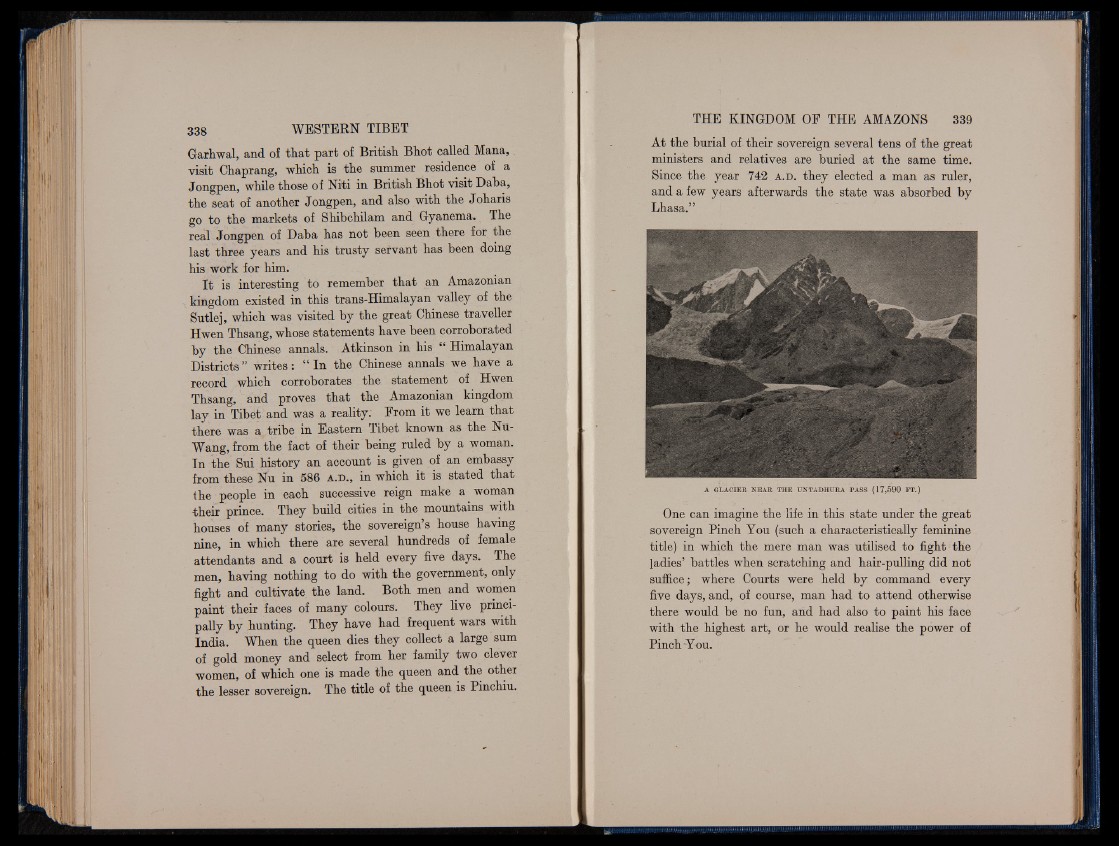
Garhwal, and of that part of British Bhot called Mana,
visit Chaprang, which is the summer residence of a
Jongpen, while those of Niti in British Bhot visit Daba,
the seat of another Jongpen, and also with the Joharis
go to the markets of Sbibchilam and Gyanema. The
real Jongpen of Daba has not been seen there for the
last three years and his trusty servant has been doing
his work for him.
I t is interesting to remember that an Amazonian
kingdom existed in this trans-Himalayan valley of the
Sutlej, which was visited by the great Chinese traveller
Hwen Thsang, whose statements have been corroborated
by the Chinese annals. Atkinson in his “ Himalayan
Districts ” writes: “ In the Chinese annals we have a
record which corroborates the statement of Hwen
Thsang, and proves that the Amazonian kingdom
lay in Tibet and was a reality. From it we learn that
there was a tribe in Eastern Tibet known as the Nu-
Wang, from the fact of their being ruled by a woman.
In the Sui history an account is given of an embassy
from these Nu in 586 a .d ., in which it is stated that
the people in each successive reign make a woman
their prince. They build cities in the mountains with
houses of many stories, the sovereign’s house having
nine, in which there are several hundreds of female
attendants and a court is held every five days. The
men, having nothing to do with the government, only
fight and cultivate the land. Both men and women
paint their faces of many colours. They live principally
by hunting. They have had frequent wars with
India. When the queen dies they collect a large sum
of gold money and select from her family two clever
women, of which one is made the queen and the other
the lesser sovereign. The title of the queen is Pinchiu.
At the burial of their sovereign several tens of the great
ministers and relatives are buried at the same time.
Since the year 742 a .d . they elected a man as ruler,
and a few years afterwards the state was absorbed by
Lhasa.”
A GLACIER HEAR THE UNTADHURA PASS (17,590 F T .)
One can imagine the fife in this state under the great
sovereign Pinch You (such a characteristically feminine
title) in which the mere man was utilised to fight the
ladies’ battles when scratching and hair-pulling did not
suffice; where Courts were held by command every
five days, and, of course, man had to attend otherwise
there would be no fun, and had also to paint his face
with the highest art, or he would realise the power of
Pinch You.